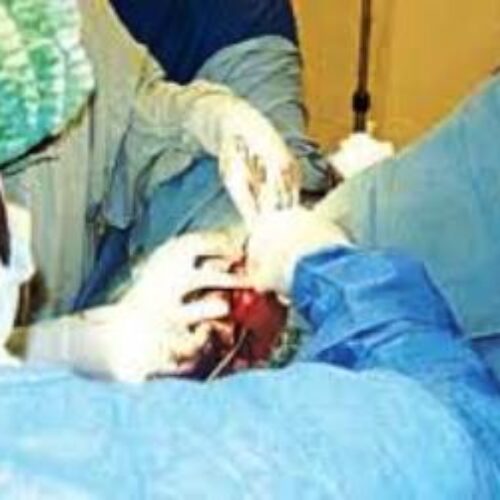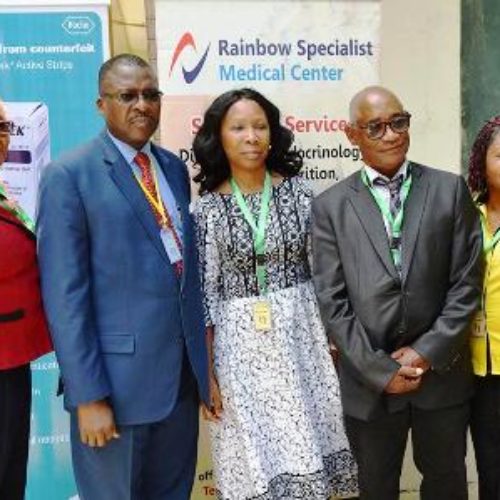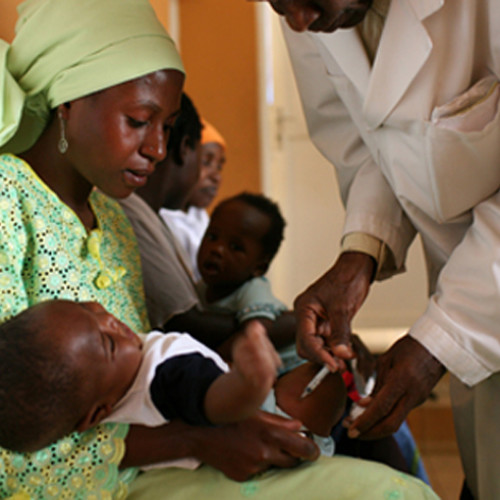<strong>Gates Foundation announces $40m fund for mRNA vaccine manufacturing in Africa</strong>
Bill Gates, Co-chair, Bill & Melinda Gates Foundation, says there is a new investment to advance access to mRNA research and vaccine manufacturing technology.
Gates said in a statement at the 2023 Grand Challenges Annual Meeting of the foundation held in Senegal on Monday.
According to him, the investment will support low-and middle-income countries’ (LMICs) capacity to develop high-quality, lifesaving vaccines at scale.
Gates said the move was based on lessons the foundation learned from more than 20 years of working with vaccine manufacturers in LMICs and the opportunity to leverage recent scientific advances.
This, he said, was to develop low-cost, high-quality health tools that reach more people around the world.
Gate also said that that mRNA technology was considered a potential game-changer for a range of infectious diseases, including tuberculosis, malaria, and Lassa fever, which disproportionately affect people in LMICs.
“This new technology can significantly lower the costs of mRNA research and manufacturing and enable expanded access-helping to close critical gaps,” Gates said.
Messenger ribonucleic acid (mRNA) vaccines work by triggering the immune system to create antibodies. Antibodies are proteins in the body which fight bacteria and viruses that cause diseases.
Gates announced 40 million dollars in funding to advance access to Quantoom Biosciences’ low-cost, mRNA research and manufacturing platform, which was developed with an early-research Grand Challenges grant made to its parent company, Univercells.
He said that the Institut Pasteur de Dakar (IPD) and Biovac, research institutes with vaccine manufacturing experience based in Senegal and South Africa, respectively, will receive five million dollars each to acquire the technology and enable it to develop locally relevant vaccines.
To further advance the technology and lower costs for commercialisation, Gates said the foundation would also provide 20 million dollars to Quantoom Biosciences, in ensuring LMICs benefits from the next-generation mRNA health tools.
Gates said the foundation would grant another 10 million to other LMIC vaccine manufacturers to be named.
He also said that this new funding builds on the foundation’s previous 55 million dollars investment in mRNA manufacturing technology.
According to him, mRNA vaccines have simpler research and manufacturing processes than traditional vaccines.
Gates said expanding access to this next-generation technology could assist countries like Senegal and South Africa gain autonomy to discover and develop low-cost, high-quality vaccines for diseases such as malaria and tuberculosis that are consistent with their health priorities.
Dr Muhammad Ali Pate, Nigeria’s Coordinating Minister of Health and Social Welfare and a global expert on vaccines, said putting innovative mRNA technology in the hands of researchers and manufacturers in Africa and around the world would ensure more people benefit from next-generation vaccines.
“This collaboration is an encouraging step that will increase access to critical health technologies and help African countries develop vaccines that meet the needs of their people,” Pate said.
Similarly, Dr Amadou Sall, Chief Executive Officer of IPD, said expanding the organisation’s capacity to discover and manufacture affordable mRNA vaccines in Africa was an important and necessary step towards vaccine self-reliance in the region.
“We welcome this new funding, which will promote the development of lifesaving technologies on the continent while also contributing to global health security by expanding the supply and access to vaccines—allowing us to achieve greater health equity worldwide,” Sall said.
Also, Morena Makhoana, CEO of Biovac said innovation can be transformative, but only if it reaches the people who need it most.
“This collaboration will help close critical gaps in access to promising mRNA vaccines against diseases that disproportionately affect the world’s poorest.
It will also assist us in our mission to establish end-to-end vaccine manufacturing capability at scale in Africa for global supply,” Makhoana said.
Similarly, José Castillo, CEO, Quantoom Biosciences, said the development of new vaccines was costly, resource intensive, and concentrated in high-income countries.
Castillo said that Quantoom’s modular mRNA technology addresses common bottlenecks in current mRNA research and manufacturing technologies, making it simpler and cheaper to use.
According to him, the cost to produce a vaccine could drop by more than 50 per cent with Quantoom’s platform compared to traditional mRNA technology.
He said it could also significantly reduce the need for deeply trained experts, which continues to be a barrier to vaccine production in Africa and elsewhere, while maintaining or even increasing the quality of the product.
“We’re thrilled to partner with IPD and Biovac to scale our technology in Senegal and South Africa and help increase access to novel mRNA vaccines—one of medicine’s most promising new tools.”
The News Agency of Nigeria (NAN) reports that the additional funding for Quantoom builds on an initial grant made in 2016 to Univercells in response to a Grand Challenges call for new interventions for vaccine manufacturing.
The Univercells proposal focused on developing modular engineering principles that would facilitate decentralised, small-footprint manufacturing of vaccines.
IPD plans to start manufacturing essential measles and rubella vaccines using Univercells’ original vaccine manufacturing technology, expanding the region’s capacity to deliver routine immunisation campaigns. (NAN)























0 Comments
No Comments Yet!
You can be first to comment this post!